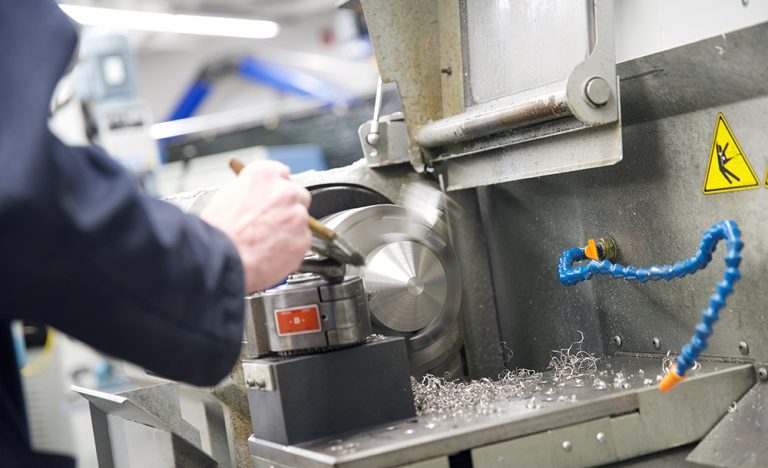Advanced Materials & Fabrication
Advanced Machining
 Promoting survivability in remote environments can involve testing and analysis of large scale structures. UBC’s High Head Lab is a state-of-the-art facility that houses numerous studies on green construction materials, geo-technical engineering, and the environmental effects on infrastructure. Advanced machining can produce more durable parts and prototypes than the additive manufacturing (3D printing) process. UBC’s Machine and Wood Shops are equipped with a range of equipment for civil engineering applications, from machines for crushing and drying materials to material tensile, compression, impact, hardness, and shear testing. This equipment can be used to shape various materials (metals, woods, plastics) for one-off or small-batch part fabrication.
Promoting survivability in remote environments can involve testing and analysis of large scale structures. UBC’s High Head Lab is a state-of-the-art facility that houses numerous studies on green construction materials, geo-technical engineering, and the environmental effects on infrastructure. Advanced machining can produce more durable parts and prototypes than the additive manufacturing (3D printing) process. UBC’s Machine and Wood Shops are equipped with a range of equipment for civil engineering applications, from machines for crushing and drying materials to material tensile, compression, impact, hardness, and shear testing. This equipment can be used to shape various materials (metals, woods, plastics) for one-off or small-batch part fabrication.
Flow Modelling & Measurement
The ability to model and measure air and fluid flows is relevant to a range of applications, from aerospace design to optimizing fabrication processes for new plastic and glass materials.
Simulation of fluid dynamics has expanded from traditional applications such as auto and aircraft aerodynamics to sports (development of Olympic swimsuits, for example) and leading-edge medical therapies (design of implantable medical devices).
STAR has software for computational fluid dynamics (CFD) modelling, as well as specialized injection-molding simulation (Polyflow) for plastic forming, blow molding, extrusion, fiber drawing, and concrete shaping.
Actual flow measurements can be done using techniques such as Particle Image Velocimetry (PIV), a non-intrusive laser optical measurement technique. 3D flow measurements can be provided at high speeds (typically 1 to 2 kHz) with research and diagnostics into flow, turbulence, microfluidics, spray atomization and combustion processes. Flow studies in micro-channels can also be done in lab-on-a-chip devices.